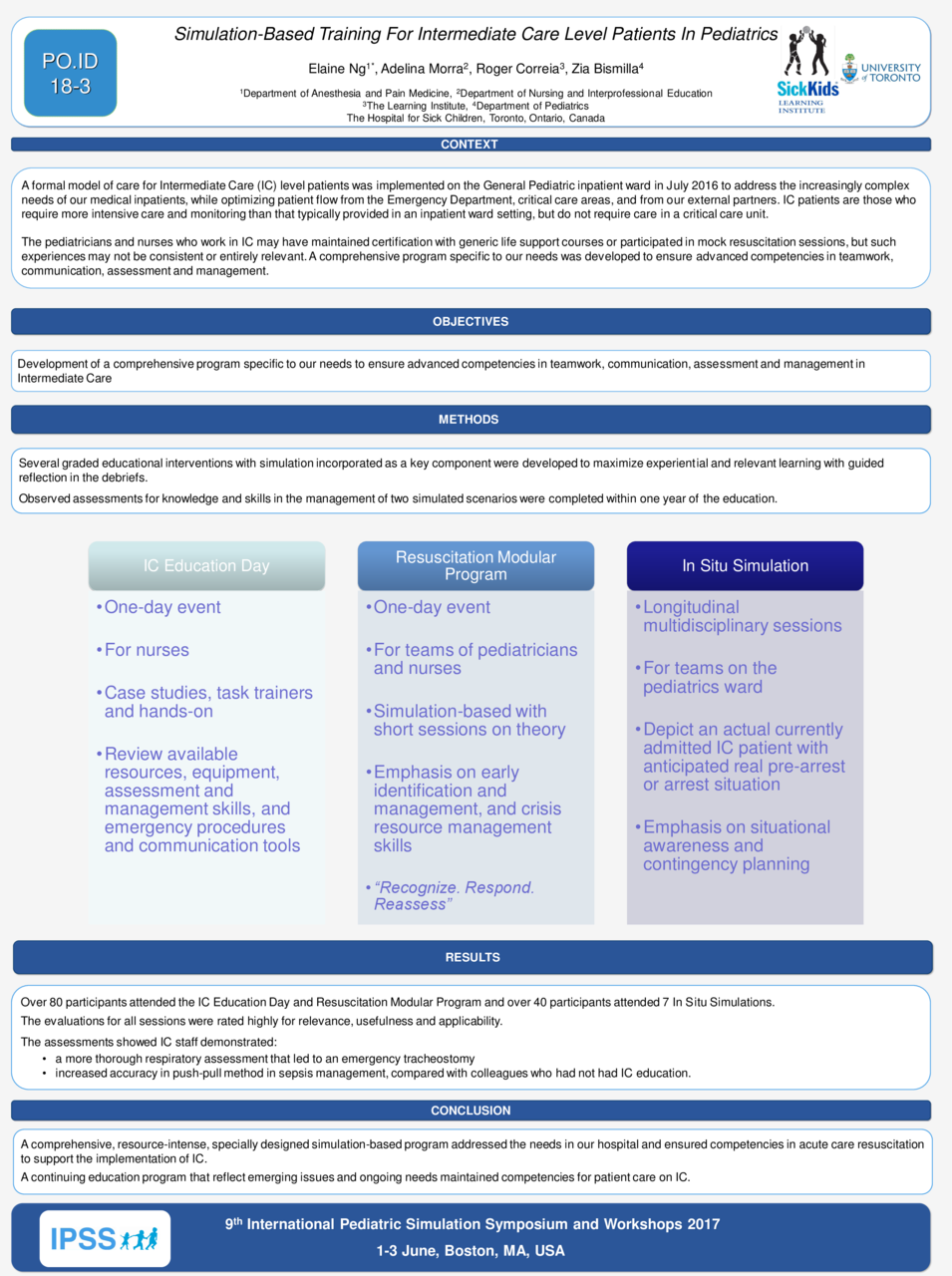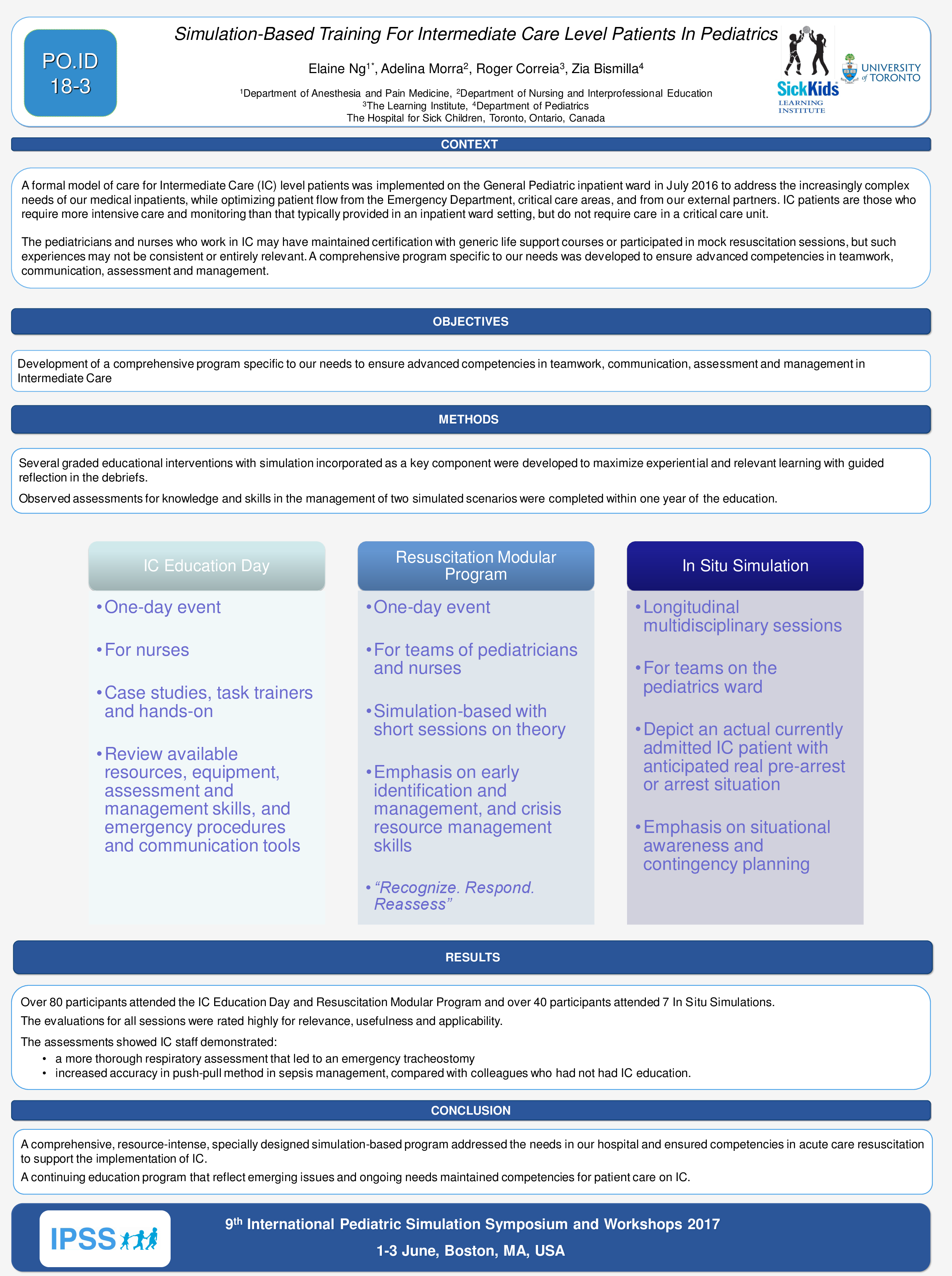Abstract
Context
A formal model of care for Intermediate Care (IC) level patients was implemented on the General Pediatric inpatient ward in July 2016 to address the increasingly complex needs of our medical inpatients, while optimizing patient flow from the Emergency Department, critical care areas, and from our external partners. IC patients are those who require more intensive care and monitoring than that typically provided in an inpatient ward setting, but do not require care in a critical care unit. The pediatricians and nurses who work in IC may have maintained certification with generic life support courses or participated in mock resuscitation sessions, but such experiences may not be consistent or entirely relevant. A comprehensive program specific to our needs was developed to ensure advanced competencies in teamwork, communication, assessment and management.
Description
Several graded educational interventions with simulation incorporated as a key component were developed to maximize experiential and relevant learning with guided reflection in the debriefs.
1. IC Refresher Day – a one-day event for nurses that utilized case studies, task trainers and hands-on practices to review the available resources, equipment, assessment and management skills, and emergency procedures and communication tools.
2. Resuscitation Modular Program – a one-day event with simulation practice for teams of pediatricians and nurses with emphasis on early identification and management, and crisis resource management skills.
3. In-situ mock code simulations – longitudinal multidisciplinary sessions on the ward designed to depict an actual currently admitted IC patient with anticipated real pre-arrest or arrest situation, with emphasis on situational awareness and contingency planning.
Observed assessments for knowledge and skills in the management of two simulated scenarios were completed within one year of the education.
Observations/ Evaluation
Over 80 subjects participated. The evaluations for all sessions were rated highly for relevance, usefulness and applicability. The courses were layered for their level of complexities with emphasis on teamwork and incorporation of local practices. The assessments showed IC staff demonstrated a more thorough respiratory assessment that led to an emergency tracheostomy and they demonstrated increased accuracy in push pull method compared with colleagues who had not had IC. Barriers to education included time for attendance and availability of space for in situ simulations.
Discussion
A comprehensive, resource-intense, specially designed simulation-based program that addresses the needs in our tertiary care pediatric hospital ensured competencies on acute care resuscitation to support the implementation of IC. Ongoing continuing education program that reflect emerging issues and ongoing needs maintained competencies for patient care on IC.






